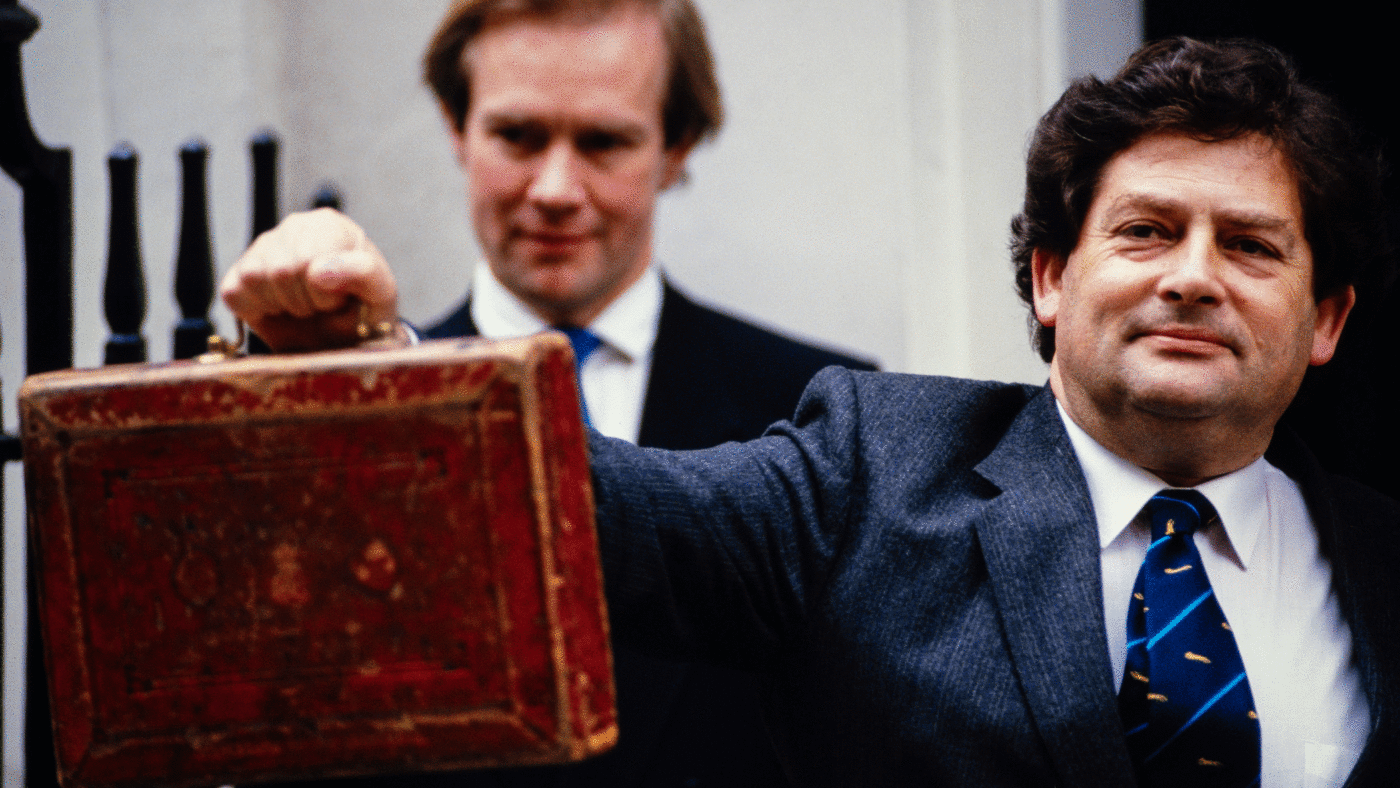Nigel Lawson left a huge legacy. Under his stewardship Britain went from being the sick man of Europe into becoming an economic powerhouse and one of the world’s leading economies. He is regarded by many as the finest Chancellor of the 20th century, and was certainly one of the most influential.
Lord Lawson held the firm conviction that lower taxes created space for enterprise and opportunity, and made it his policy that in every Budget he would lower the burden of taxation and abolish at least one tax. Tax Freedom Day, the date on which the average British taxpayer pays off their burden to the state, went down or stayed the same every year for ten years. Six of those years were when Lawson was Chancellor.
During his tenure, Britain was transformed from being an economy in which most major businesses and services were owned and run by the state, into one in which they became private businesses, paying taxes instead of receiving taxpayer subsidies. Failing and outdated state enterprises became modern, successful private ones.
He left his mark on the Treasury too. Many Chancellors ‘go native’ and are absorbed into the mindset of the Treasury. With Lawson it was the other way round. Under his direction, the Treasury team became firm advocates of the market economy and of simpler, lower taxes.
His 1988 Budget saw some of the rowdiest scenes in Parliament. When he announced that all taxes above 40% would be abolished, and that the basic rate would be cut to 25%, its lowest for 50 years, there were short of protest from some opposition members, and Alex Salmond was ejected from the House after shouting interruptions and describing the tax cuts as ‘utter obscenity’.
In the event, though, Nigel Lawson was proved right and Alex Salmond wrong. Within a very short time, more money was coming into the Treasury from the lower rates than it had been taking in from the higher ones. It was a vindication of the Laffer Curve.
The killer statistic emerged in an answer to a later parliamentary question. The top 10% of earners had been paying 35% of the total income tax take. Under Lawson’s lower rate that went up to 48%. In rough terms this meant that the top 10% went from paying just over a third to just under a half of total income taxes.
As many have remarked, he was a highly intelligent man and remained intellectually sharp to the end. No discussion or conversation with him was ever wasted because he would always get straight to the point that mattered.
I once witnessed an amusing exchange he had with his hosts when we attended a Paris conference on privatisation. At the lunch, his hosts politely addressed him in English, but Lawson replied in fluent and idiomatic French. They kept trying to converse with him in English, but Lawson was no less determined to speak in his hosts’ language rather than his own. Lawson won out, of course.
He was fond of French food and cuisine, and very knowledgeable on the subject. He had a second home in France and stayed there whenever he could. In later life it became his principal residence. During his term in office he was decidedly on the portly side, but he later trimmed down to become what some called a shadow of his former self. He even published a best-selling diet book describing how he achieved this.
After his retirement from the House of Commons and promotion to the Lords, he founded the Global Policy Warming Foundation to publish research that countered some of the more outlandish claims of the global warming lobby.
He was a good friend and ally of both the Adam Smith Institute and CapX’s parent organisation the Centre for Policy Studies, often speaking at conferences and authoring papers. He also had a good sense of humour. When the ASI cheekily republished ‘The Report of the Bullion Committee of 1810’ about controlling the supply of paper money, while he was still Chancellor, Lawson put out a statement saying he would ‘study it and attend to its findings’.
His last appearance with the ASI was when he was interviewed as one of its Freedom’s Fighters and vigorously defended his record. He was a giant in a profession that produces few of them.
Click here to subscribe to our daily briefing – the best pieces from CapX and across the web.
CapX depends on the generosity of its readers. If you value what we do, please consider making a donation.


